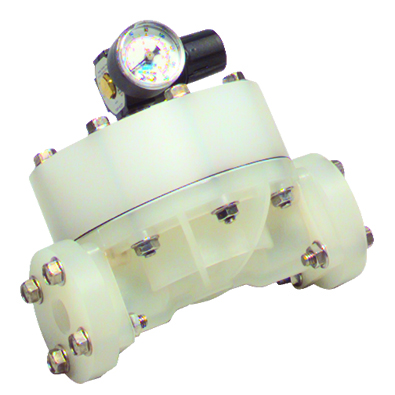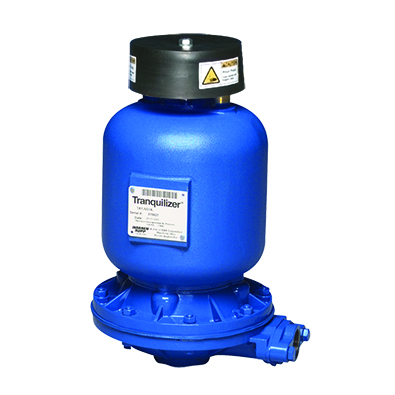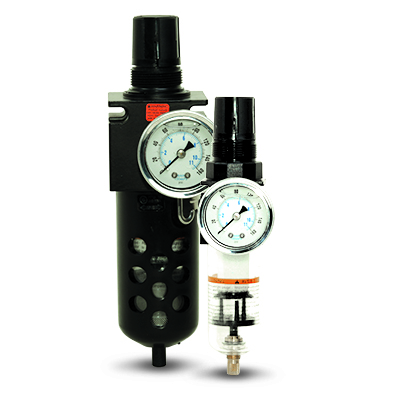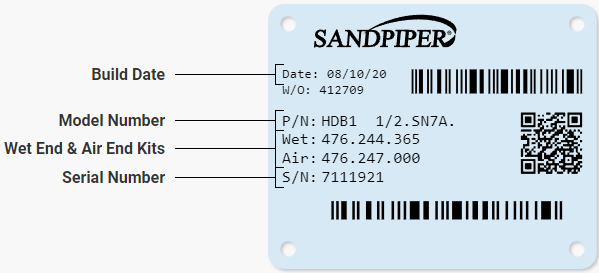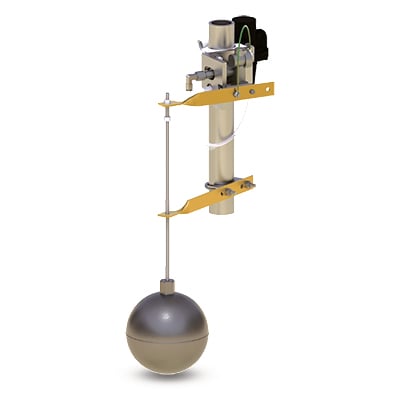When it comes to ensuring the efficiency, reliability, and longevity of air-operated double-diaphragm (AODD) pumps, selecting the right diaphragm material is crucial. AODD pumps play a pivotal role in many industrial applications, making the choice of diaphragm material a critical consideration. At SANDPIPER, we help our customers choose the perfect diaphragm material for their AODD pumps to meet specific operational requirements, resulting in optimized performance and minimal downtime.
The variety of diaphragm materials available allows for a wide range of chemical compatibilities and operating temperatures. However, this diversity also brings with it a significant challenge: aligning the right diaphragm material with your intended application. The consequences of mismatching diaphragm material with your application include pump failure, costly downtime, and potential safety hazards.
At SANDPIPER, we are dedicated to helping our customers navigate these complexities. Our extensive range of AODD pumps is designed with specific applications in mind to ensure that you can find the right match for your needs. We not only provide pumps but also offer guidance on selecting the right material and technical resources to guarantee efficiency, safety, and durability.
In this blog, we’ll delve deeper into the importance of choosing the right AODD pump diaphragm material, focusing on the unique properties of each option to ensure your operations are as efficient and trouble-free as possible.
AODD Pump Diaphragm Material Selection
Understanding the various properties of each diaphragm material's unique properties, such as chemical resistance, temperature range, and mechanical durability, is key to making an informed decision.
EPDM (Ethylene Propylene Diene Monomer)
- Purchase Price: EPDM is cost-effective, providing a good balance between price and performance.
- Flex Life: Offers excellent flexibility and can endure significant bending and stretching.
- Abrasion Resistance: While not the most robust, it handles wear reasonably well.
- Chemical Resistance: Resistant to a wide range of chemicals, making it versatile.
- Temperature Limitations: With a max operating temperature of 280°F and a min of -40°F, it operates well within a broad range.
FKM (Fluoroelastomer)
- Purchase Price: FKM AODD pumps have a higher cost due to their performance in harsh conditions.
- Flex Life: FKM may not be the best choice where extensive flexing is required.
- Abrasion Resistance: May not be ideal for applications with high abrasion.
- Chemical Resistance: Excellent chemical resistance, suitable for aggressive chemicals.
- Temperature Limitations: Can withstand temperatures up to 350°F.
Hytrel®
- Purchase Price: Hytrel’s performance characteristics are a cost-effective solution.
- Flex Life: One of the best material choices where flexing is necessary.
- Abrasion Resistance: Excellent for abrasive applications.
- Chemical Resistance: Can resist a variety of chemicals.
- Temperature Limitations: Handles a decent temperature range but not as wide as others, such as EPDM and FKM.
Neoprene
- Purchase Price: Offers a balance between cost and effectiveness.
- Flex Life: Very good at handling repeated flexing.
- Abrasion Resistance: Performs reasonably well with abrasive materials.
- Chemical Resistance: May not be compatible with certain chemicals.
- Temperature Limitations: Good for use within its specified temperature range.
Nitrile
- Purchase Price: Moderately priced with good overall performance.
- Flex Life: Can handle flexing very well for many applications.
- Abrasion Resistance: Strong against abrasive substances.
- Chemical Resistance: Good with many chemicals, but with some exceptions.
- Temperature Limitations: Performs well under extreme temperatures.
Santoprene®
- Purchase Price: Reasonable cost for the value it provides.
- Flex Life: Has a good service life with above-average flexing capacity.
- Abrasion Resistance: Handles abrasive materials very well.
- Chemical Resistance: Can work with a variety of chemicals.
- Temperature Limitations: Excellent temperature range for diverse applications.
Urethane
- Purchase Price: Moderate price.
- Flex Life: Can withstand repeated flexing without failure.
- Abrasion Resistance: Not ideal for handling abrasive materials.
- Chemical Resistance: Its chemical compatibility is limited to certain substances.
- Temperature Limitations: Performs well in both high and low-temperature extremes.
PTFE Synthesis
- Purchase Price: Generally more expensive due to its specialized properties.
- Flex Life: May not be as flexible as other materials.
- Abrasion Resistance: Can handle moderate levels of abrasion.
- Chemical Resistance: Highly resistant to chemicals.
- Temperature Limitations: Has a narrower operational temperature range compared to other AODD pump materials.
PTFE Two-Piece
- Purchase Price: Like PTFE Synthesis, it comes at a higher cost.
- Flex Life: Lacks the flexibility required for some applications.
- Abrasion Resistance: Not the best choice for abrasive environments.
- Chemical Resistance: Offers excellent chemical resistance.
- Temperature Limitations: Capable within its specific temperature range.
Each material's unique chemical composition and physical properties determine its suitability for different applications. For example, EPDM is renowned for its resistance to heat, ozone, and weather, contributing to its excellent flex life. Urethane is recognized for its toughness and wear resistance, making it suitable for applications involving abrasion. FKM stands out in high-temperature and chemical-resistant applications due to its ability to maintain properties under extreme conditions.
Selecting the best diaphragm material for your application depends on the specific requirements of the pump's operating environment. Understanding these material properties and consulting with the experts at SANDPIPER can guide you to the ideal choice for your AODD pump, ensuring operational efficiency, safety, and durability. For further assistance, contact us or find a distributor today.











